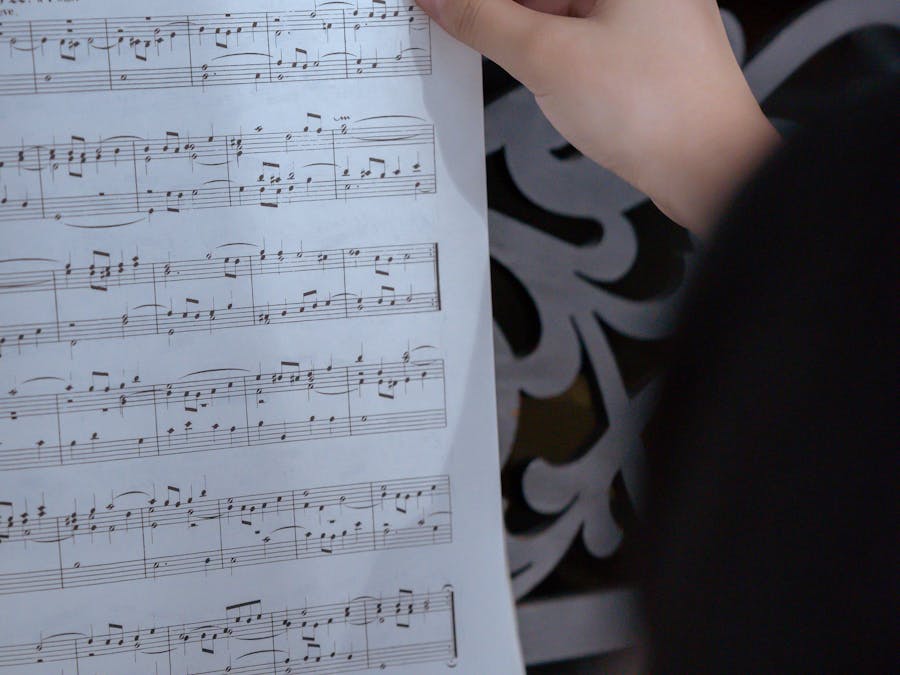 Piano Guidance
Piano Guidance
 Piano Guidance
Piano Guidance

 Photo: Marta Wave
Photo: Marta Wave
Playing piano by ear is not necessarily something you're born with. Of course, many people are able to play by ear without any training; they seem to have a gift for it. However, it's absolutely possible to learn how to play by ear if you've got a solid grasp of harmonic structure and chords.

Choose Repertoire To Challenge and Entertain You Overall, one of the most important ways to keep having fun at the piano is to pick repertoire that...
Read More »
When it comes to taking music lessons, it's most common for students to take one lesson per week. While weekly lessons work perfectly fine for...
Read More »
A manual can get tiresome in heavy traffic. The learning curve is steep. It requires precise control on hills to avoid stalling or rolling back....
Read More »
When you begin driving a stick shift, the tachometer is a good way to help you determine when you should shift up or down. Generally, you should...
Read More »Learn time signatures. A little experiment for you. Listen to this piece. You might be able to pick out the chords, but can you pick out the time signature? I’ll give you a hint; it’s 5/4. Now, if you weren’t able to figure that out yourself, you wouldn’t be able to play along with or accompany a band playing this music. This is why it’s very important to be able to figure out the time signature that you need to play in. Practice, practice, practice your scales and arpeggios. I can’t stress this enough. This will help you immensely with chord improvisations, but also with working out melody and harmony of any piece you will need to play. Of course, many people say that playing music by ear is easier than learning how to read music. But if you need to do all this stuff in order to be an expert at playing by ear, is it really that much easier? The Benefits of Reading Music A little off topic; I know this article is about playing by ear, but there is definitely something to be said about learning to read music. You might have already decided you want to play by ear, and that’s fine - there is merit to doing both. In fact, that’s what I’d suggest - learning to do both. That makes you a much more versatile musician, with the ability to play in a wealth of styles and genres. Reading music gives you the flexibility and the skill to play almost anything; and as I’ve said, it’s not a case of doing one or the other. In many ways, learning to read music can actually help you to play by ear more efficiently. While it’s absolutely a great skill to be able to just play something by hearing it, in my opinion there’s nothing more liberating than being able to sit down in front of a piece of music you’ve never seen before, and just play it. If you can sight read, and you can read music well, you will be able to play anything. One thing that's really important to note when you're learning to play the piano by ear is to practice properly. I'd really recommend you read up on effective practice and using a metronome; both articles on this website that I think will help you. Conclusion Reading music is a great skill. Playing by ear is a great skill too. I’d recommend becoming good at both. However, if you really want to play piano by ear, you’re going to have to work at it, unless you’re immensely talented. Make sure you have a solid grasp of music theory. Know popular chord progressions inside and out. Know every scale in every key imaginable. This will make playing the piano by ear absolutely effortless.

9 Best Kawai Digital Piano Reviews Kawai MP11 Professional Stage Piano. ... Kawai MP6 Professional Stage Piano. ... Kawai ES100 88-key Digital...
Read More »
If you want to be a professional classical performer, you're looking at a minimum of 10 to 15 years of concentrated study with a master teacher,...
Read More »
The way trap music uses hi-hats is unique. The sound is a busy, short burst. The hats are programmed in complicated patterns, at rapid-fire...
Read More »
Bts is kpop boy band from BigHit Entertainment. Bts means Bulletproof Boyscoucts in korean but they have recently changes their english name to...
Read More »
A pianist who is performing usually has both hands and sometimes both feet engaged. They also have to maintain a certain posture that restricts the...
Read More »
Basic Jazz Chord Progressions Major ii-V-I. The major ii-V-I is easily the most important chord progression to get a handle on when it comes to...
Read More »